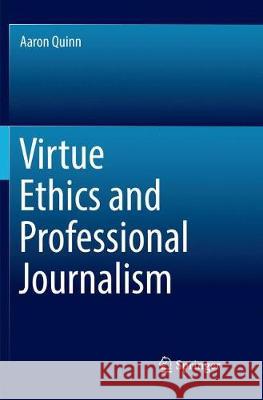Virtue Ethics and Professional Journalism » książka
topmenu
Virtue Ethics and Professional Journalism
ISBN-13: 9783030131784 / Angielski / Miękka / 2019 / 177 str.
Kategorie BISAC:
Wydawca:
Springer
Język:
Angielski
ISBN-13:
9783030131784
Rok wydania:
2019
Dostępne języki:
Ilość stron:
177
Waga:
0.27 kg
Wymiary:
23.39 x 15.6 x 1.02
Oprawa:
Miękka
Dodatkowe informacje:
Wydanie ilustrowane











